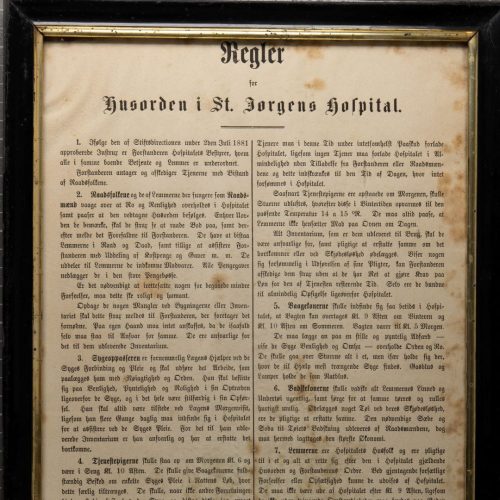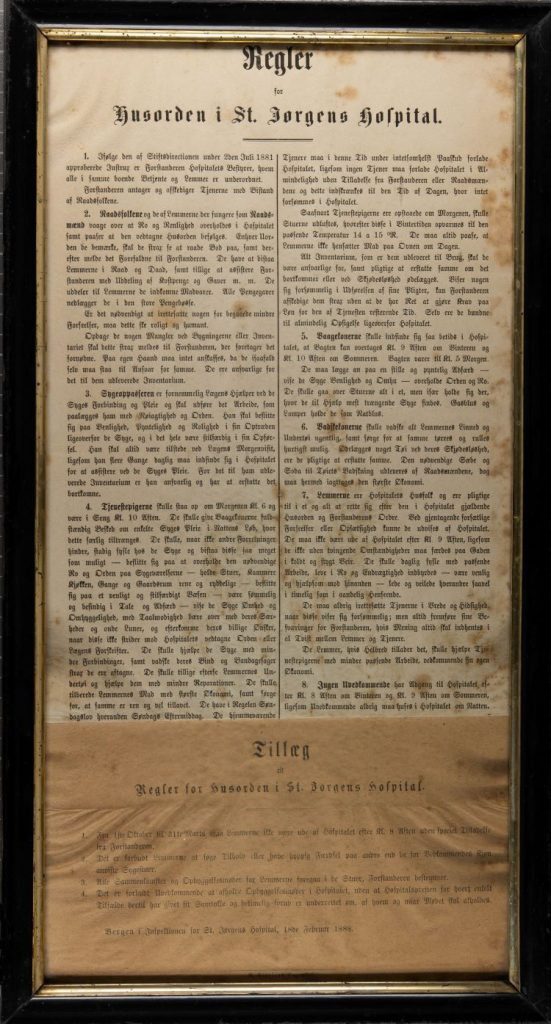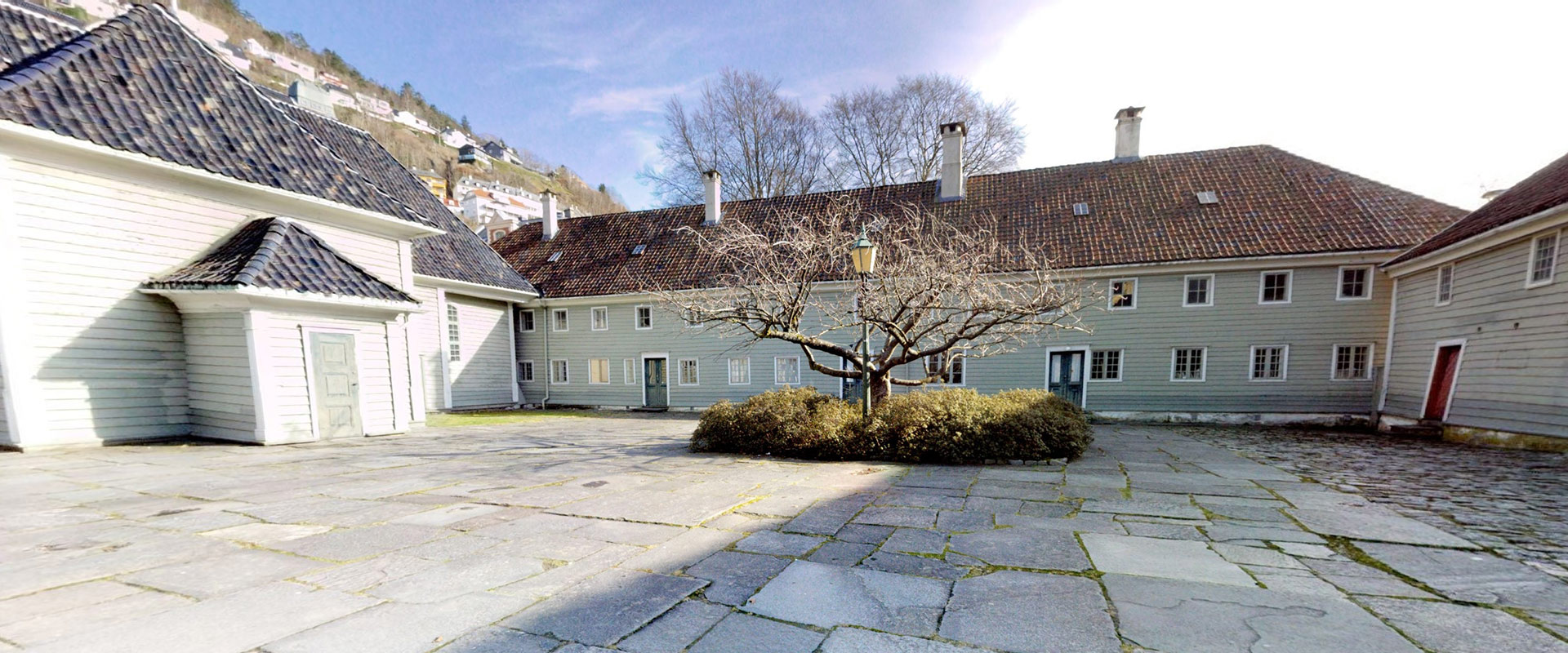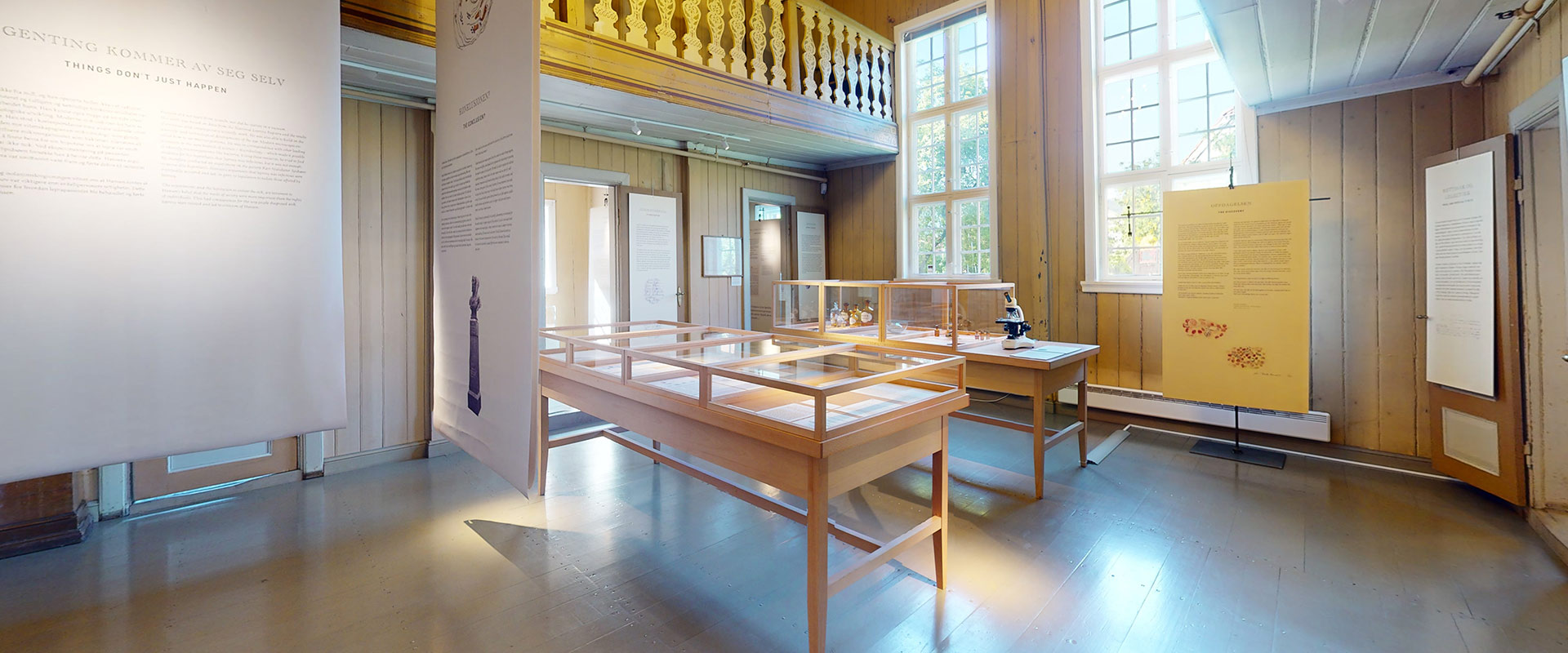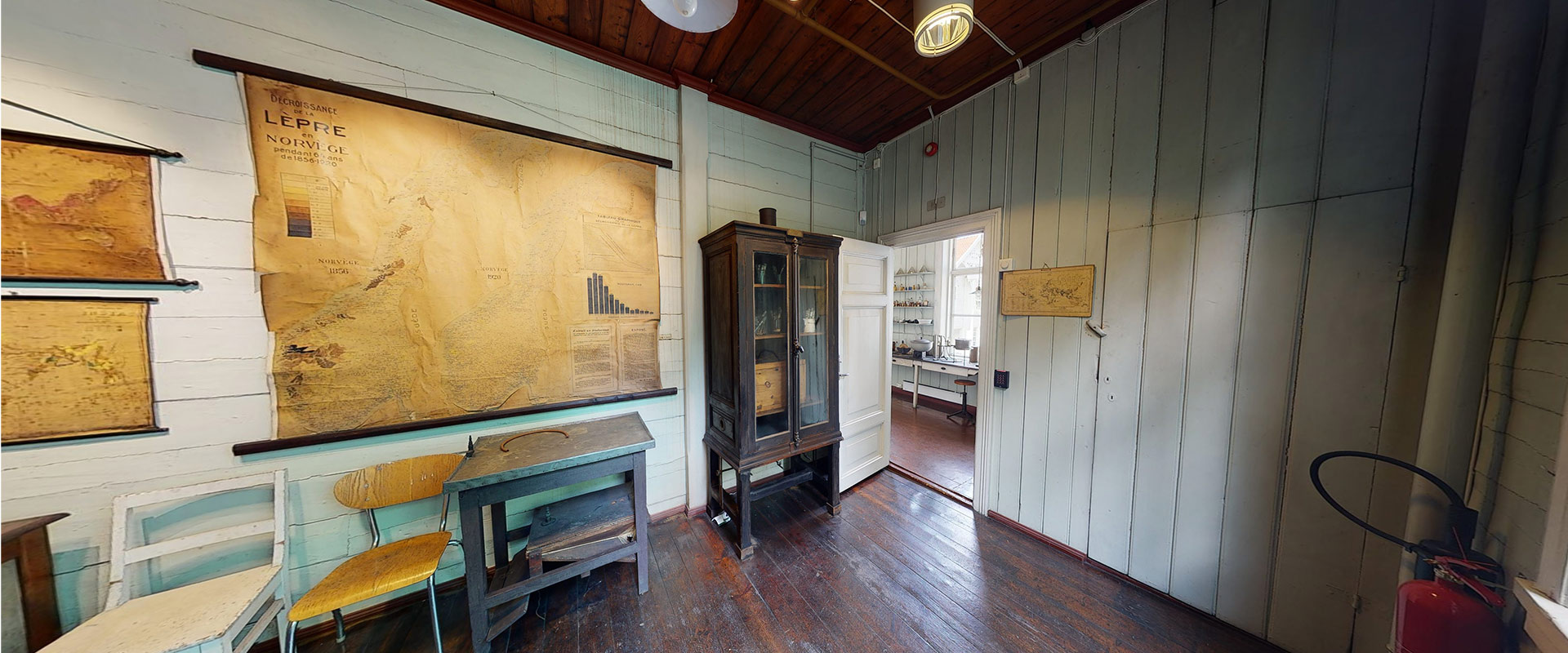HOUSE RULES AT ST. JØRGEN’S HOSPITAL
- According to the instructions of 2 July 1881 sanctioned by the Diocesan board, the Superintendent of the Hospital is its governor, to whom all in the same residence, staff and residents, are subordinate.
The Superintendent hires and dismisses servants with the assistance of the residents’ representatives.
- The residents’ representatives ensure that peace and cleanliness are observed at the hospital and that the agreed house rules are followed. Any disorder they notice, they shall at once seek to remedy, and then report what has happened to the Superintendent. They shall assist the residents with advice and action, and also assist the Superintendent with the allocation of money for subsistence allowances and gifts, etc. They distribute the food received to the residents. All monetary gifts are to be placed in the large money box.
If it is necessary to admonish anyone for any minor offences, this must be done calmly and humanely.
If they discover any shortcomings in the buildings or inventory, this must be reported immediately to the Superintendent, who will do what is necessary. They must not procure anything themselves, since they must in such case be held responsible for this.
They are responsible for the inventory provided to them.
- The orderly is the physician’s assistant in bandaging and caring for the sick, and must carry out the work that is assigned to him with precision and order. He must endeavour to be kind, proper and calm in his conduct in relation to the sick, and altogether be gentle in his manner. He must always be present at the doctor’s morning visit, just as he must be present several times a day at the hospital to assist with the care of the sick. He is responsible for the inventory provided to him and has to replace any loss.
- The servant girls are to rise at 6 o’clock in the morning and be in bed by 10 o’clock in the evening. They shall give the watch full instructions about the care of individual patients during the night, when this is particularly needed. They shall, when other business does not prevent them from doing so, continue to tend the sick, and assist them as much as possible to observe the necessary peace and order in the sick residents’ wards; keep the rooms, chambers, kitchens, hallways, and courtyards clean and tidy; conduct themselves in a friendly and gentle manner; be decorous and even-tempered in their speech and conduct; be sensitive and attentive to the sick; bear patiently with their peculiarities and vagaries; and comply with their reasonable desires, when these are not contrary to the accepted order of the hospital, or to the doctor’s instructions. They should help the sick with minor dressings, as well as washing their dressings and bandages as soon as they are removed. They should also inspect the residents’ undergarments and help them with minor repairs. They should prepare the residents’ food with the greatest economy, and make sure that it is clean and well prepared. They generally have every other Sunday afternoon off work. During this time, the servants on duty may not leave the hospital on any account, just as no servant may leave the hospital in general without the permission of the Superintendent or residents’ representatives, and this shall be restricted during the time of the day when nothing is to be neglected in the hospital.
As soon as the servant girls have arisen in the morning, the rooms are to be aired, after which they are heated in winter to the appropriate temperature 14 a 15 Reaumur (17.5–18.75 °C). They must always ensure that the residents do not put food in the oven during the day.
They shall be responsible for all inventory provided to them for use, and shall be obliged to replace this if it is lost or carelessly destroyed. If someone proves negligent in the performance of their duties, the Superintendent may dismiss them immediately without having the right to claim wages for their remaining term of service. They are bound by general termination rights in relation to the Hospital.
- The watch wives must arrive at the hospital in time to take over the watch at 9 o’clock in the evening during winter, and at 10 o’clock in the evening during summer. The watch lasts until 5 o’clock in the morning.
They must behave quietly and properly, showing kindness and care for the sick, and respecting order and peace. They are to watch over all the rooms, but especially where they can provide help to those most in need. Gas burners and lamps are kept as night lights.
- The washer women should wash all the residents’ linen and undergarments weekly, and ensure that these are dried and pressed as soon as possible. If any linen is destroyed by their carelessness, they are obliged to replace this. The necessary soap and soda for washing the linen is supplied by the residents’ representatives, but the greatest economy must be observed.
- The residents are the hospital’s household and are obliged to comply with all the rules of the hospital and the orders of the Superintendent. In case of repeated intentional misconduct or wilful disobedience, they may be expelled from the hospital. They must not leave the hospital after 9 o’clock in the evening, just as they are not allowed to walk the streets in cold and foul weather without compelling circumstances. They should engage daily in suitable work, live in peace and harmony among themselves, be kind and helpful to each other, and guide each other, both temporally and spiritually.
They must never reprimand the servants in anger and animosity when they prove negligent; but must always present their difficulties to the Superintendent, whose opinion must always be obtained in all disputes between residents and servants.
The residents, whose health permits it, should help the servant girls with minor suitable work, for the benefit of their own finances.
- No unauthorised persons may have access to the hospital after 8 o’clock in the evening during winter, and 9 o’clock in the evening during summer, just as unauthorised persons must never be housed in the hospital at night.
ADDENDUM TO THE HOUSE RULES AT ST. JØRGEN’S HOSPITAL
- From 1st October to 31st March, the residents must not be outside the hospital after 8 o’clock in the evening without the explicit permission of the Superintendent.
- It is forbidden for the residents to haunt or pay frequent visits to others, other than those of the gender designated to the ward.
- All assemblies and meetings of edification for the residents shall take place in the rooms decided by the Superintendent.
- It is forbidden for unauthorised persons to hold meetings of edification in the hospital, without the hospital chaplain having given his consent in each case and having been informed in good time of when the meeting is to be held and by whom.
Bergen in the Inspection of St. Jørgen’s Hospital, 18 February 1888.
